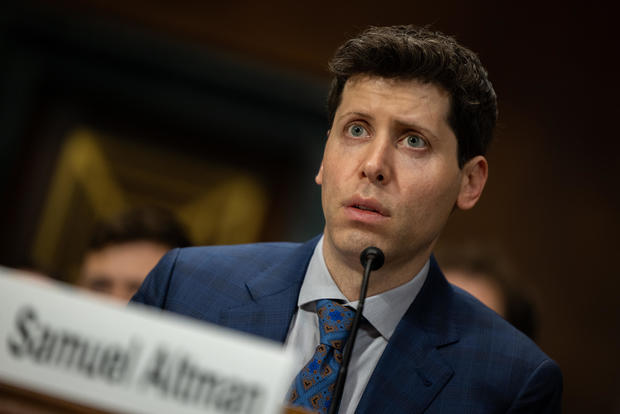Sam Altman, the CEO of the corporate behind ChatGPT, expressed concern that artificial intelligence might “go fairly fallacious” at a Senate committee listening to on Tuesday specializing in tips on how to regulate the quickly growing area of AI.
Altman, who leads San Francisco-based OpenAI, stated in response to a query about his best worry concerning AI that the know-how and business might “trigger important hurt to the world” until it’s correctly regulated.
“If this know-how goes fallacious, it may possibly go fairly fallacious,” he informed the Senate Judiciary’s Subcommittee on Privateness, Know-how and the Regulation. “We wish to be vocal about that. We wish to work with the federal government to forestall that occuring. However now we have to be clear-eyed about it.”
Requested by Sen. Josh Hawley, R-Mo., concerning the threat that so-called giant language fashions like ChatGPT, which might already predict public opinion with accuracy, may very well be used to govern individuals, akin to undecided voters, Altman replied, “I am nervous about it.” He additionally drew a parallel with the emergence of Photoshop within the late Nineties and early 2000s, when many individuals have been initially fooled by photoshopped photos earlier than growing an understanding of picture manipulation.
Nathan Posner/Anadolu Company by way of Getty Pictures
“This will likely be like that on steroids,” he stated.
AI a menace to democracy?
The congressional listening to coated a spread of issues, and senators from each events broadly agreed that AI wanted regulation, with out reaching agency conclusions on how to try this. Sen. Chris Coons, Democrat of Delaware, fretted that AI fashions developed in China would promote a pro-China “standpoint,” and pushed for the creation of AI that will promote “open markets and open societies.”
Hawley later rattled off an inventory of potential detrimental results from AI: “Lack of jobs, lack of privateness, manipulation of private habits, manipulation of private opinion and destabilization of elections in America,” he stated.
However Altman expressed optimism that AI would create more jobs than it destroys, saying, “We’re very optimistic that there will likely be improbable jobs sooner or later and that present jobs might be significantly better,” and stated that ChatGPT was “good at doing duties, not jobs.”
IBM Chief Privateness and Belief Officer, Christina Montgomery, who additionally testified within the listening to, used herself for example of AI creating new jobs, noting that she heads a workforce of AI governance professionals.
Certainly, the know-how is already disrupting some fields. Earlier this month, IBM’s chief govt told Bloomberg the corporate would pause hiring for jobs that may very well be accomplished by AI, affecting roughly a 3rd of the corporate’s headcount, or 7,800 positions.
Altman and AI researcher Gary Marcus expressed help for presidency laws on AI. That would might embody doubtlessly creating a brand new company to supervise the know-how, requiring firms to make AI fashions and their underlying knowledge public, requiring AI creators to have a license to publicly launch merchandise or show their security earlier than public launch, and have unbiased auditing of AI fashions. Montgomery advocated for a extra narrowly centered strategy the place the federal government would regulate solely sure “use circumstances” for artificial intelligence.
“These items can have realized from us”
The speedy emergence of “generative AI” — instruments that may put out reams of writing or visible photos, serving to medical doctors communicate with their patients and actual property execs shortly write listings, for instance — has heightened public issues concerning the tech. AI pioneer Geoffrey Hinton, who lately left his job at Google to talk freely concerning the know-how, lately informed a convention that AI might pose a range of threats.
“These items can have realized from us, by studying all of the novels that ever have been and all the things Machiavelli ever wrote, tips on how to manipulate individuals,” Hinton stated, in keeping with the Related Press. “Even when they cannot immediately pull levers, they’ll actually get us to drag levers.”
In March, a lot of distinguished CEOs and researchers signed a letter asking for a six-month moratorium on growing main AI fashions. “Ought to we develop nonhuman minds which may finally outnumber, outsmart, out of date and exchange us?” they asked.
At Tuesday’s listening to, nonetheless, the consensus was that the explosion in AI would proceed apace, as firms and traders pour billions of {dollars} into the know-how.
“There is no approach to cease this shifting ahead,” stated Sen. Cory Booker, D-N.J. “There will likely be no pause. There is no enforcement physique to implement a pause. Forgive me for being skeptical, no person’s pausing.”




Discussion about this post